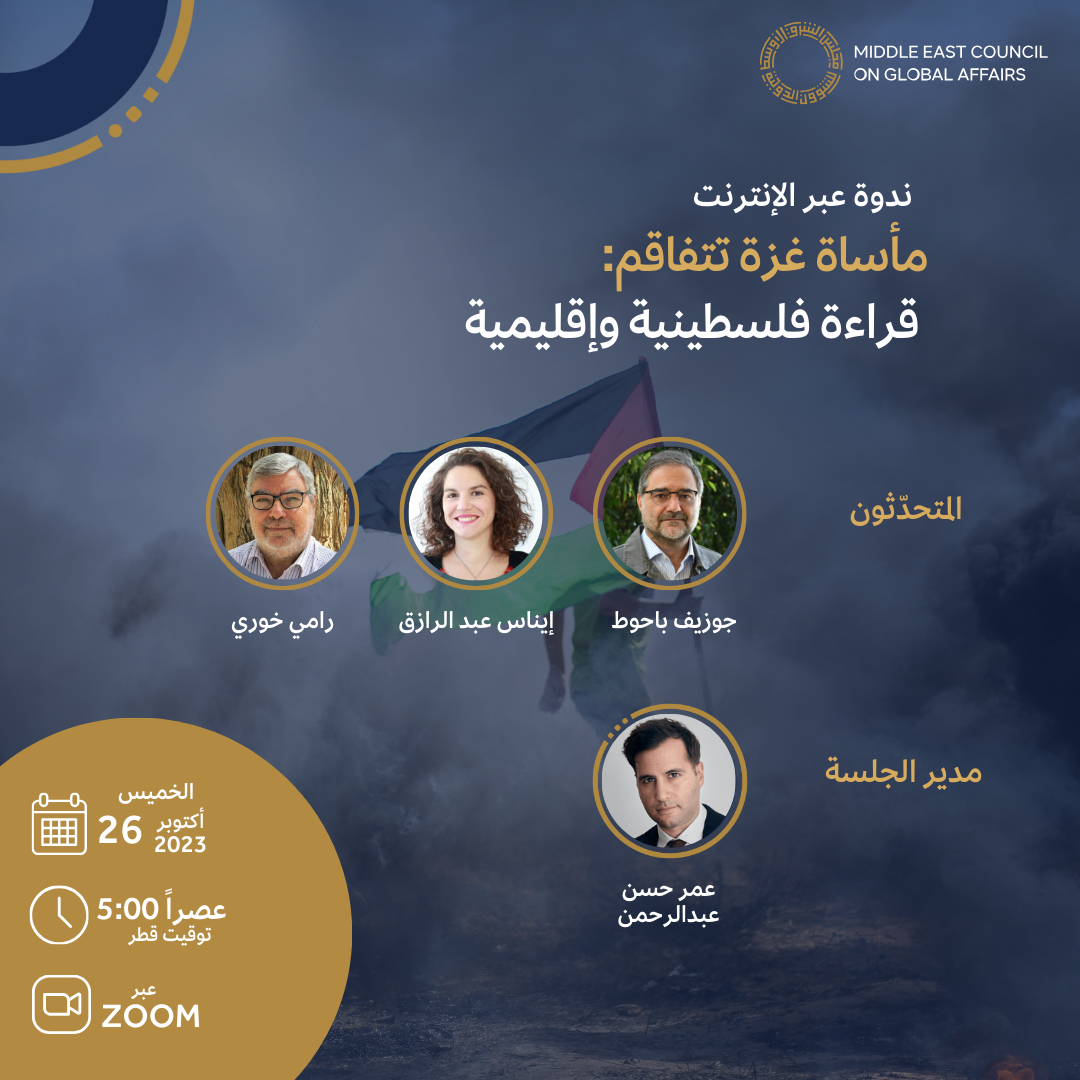|
On October 26, 2023, IFI, in collaboration with the Middle East Council on Global Affairs, held an online panel discussion titled “Gaza’s Unfolding Tragedy: Palestinian and Regional Perspectives.” Moderated by Middle East Council on Global Affairs Fellow Omar H. Rahman, speakers included IFI Director Dr. Joseph Bahout, President of the Palestine Institute for Public Diplomacy Ines Abdel Razek, and IFI Distinguished Fellow Rami G. Khouri. The objective of the discussion was to look at the impact of the conflict on the domestic arena within Israel and the Palestinian territories, as well as to better understand the implications of the conflict’s regional and international spillover. To start, Khouri outlined the historical trajectory of the conflict by connecting it to the period of the British Mandate in Palestine, as well as outlining how the Israelis merely continued many of the same policies of settler colonialism that the British had enacted. Inez Abdel Razek continued by highlighting that 2021 and 2022 had seen an escalation of conflict between Israelis and Palestinians, especially in the West Bank and Jerusalem, and that the conflict in Gaza is a continuation of this pattern of violence.
Part of the discussion involved a debate about what Israel’s long-term objectives are and the response of the international community. There was a consensus that, while the Israelis repeatedly state that there is a three-part plan to the operation in the Gaza Strip, the reality seems to be that the plan is being made up as it is being implemented. Khouri characterized the plan as being “aspirational on the part of the Israelis, very formulaic, it’s what you do when someone is attacking you, you want to stop them from attacking you in the future. The speakers also outlined the futility of Israel’s stated objective of dismantling Hamas, due to the fear of intervention by Iran and Hezbollah. According to Bahout, the conflict in Gaza “has a relation with whatever decision Hezbollah and Iran could take to escalate” and that “at the point where Hamas could be eradicated, to the point where it could endanger the geopolitical structure of these forces in the region, Hezbollah could probably not only be tempted but required to take action.” As Khouri also pointed out, there is a possibility that another, more radical group, might replace Hamas. Meanwhile, Abdel Razek also emphasized the irrelevance and unpopularity of the Palestinian Authority, and when it comes to the leadership, the Palestinians have a “range of opinions, between those who think that they are totally irrelevant to those who think they are totally complicit.” The conflict has also drawn in regional and global powers such as Qatar, Saudi Arabia, the USA, France, China, and Russia. Both Bahout and Khouri discussed potential scenarios over how the conflict might end and outlined the ways that international actors could act as mediators, though it is too early to look at diplomatic options at this point. You can watch the full recording of the webinar here. Comments are closed.
|
Archives
July 2024
|

